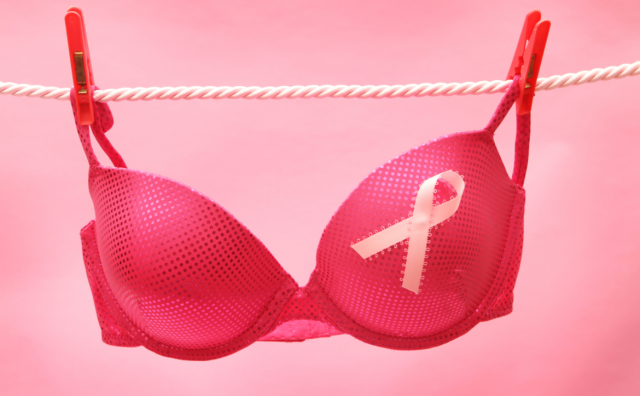October marks the arrival of Breast Cancer Awareness Month, and with that, we've compiled a guide on signs, symptoms and the importance of self-examination.
More than 2,600 Irish women are diagnosed with breast cancer every year and figures suggest we have a one in 12 chance of developing the disease in our lifetime.
Early diagnosis is key to breast cancer survival, and with 74 per cent of patients discovering the lump themselves, it's never too early to start self-examining.
Signs and symptoms
Women are encouraged to conduct a thorough breast examination at least once a month, and while we are all aware that lumps and bumps must be seen to by a doctor, there are some lesser-known symptoms that may indicate cancer in its early stages.
These include changes to the size and shape of your breast, changes in the shape of direction of the nipple, and changes in texture and colour of your skin.
As well as changes around the breast area, swelling or pain in your armpit and/ or around the collarbone, could be a sign of a underlying issue.
For a full list of symptoms associated with breast cancer, visit cancer.ie.
Risk factors
While you can never fully protect yourself from a cancer diagnosis, there are certain risk factors that every woman should be aware of.
Age, family history, and genetics all play a huge role in the potential development of breast cancer. As with many illness, your risk of breast cancer increases as you get older, and that risk is doubled if you've had one first-degree female relative (sister, mother, daughter) diagnosed with the disease.
Being overweight, excess alcohol consumption and smoking have also been linked to an increased risk.
Self-examination
The earlier breast cancer is diagnosed, the easier it is to treat, which is why the Irish Cancer Society recommend that every woman get into the habit of checking her breasts on a regular basis.
Take note of what is normal to you i.e. if your boobs often become tender or change in size around the time of your period, there should be no need for alarm. It's all about knowing your own body.
When it comes to self-examination, it's best to stand in front of a mirror so you can view your breasts from different angles. Feel around for any of the changes noted above, and discuss any concerns with your GP.
Treatment
Treatment plans are designed on a case by case basis, with doctors deciding which course is right for you.
There are are number of options available including surgery, radiation therapy, chemotherapy and drug therapies.
When diagnosed early, breast cancer is an extremely treatable disease, with survival rates improving year on year.
For more information on symptoms, risks, diagnosis and treatment, please visit www.cancer.ie.





